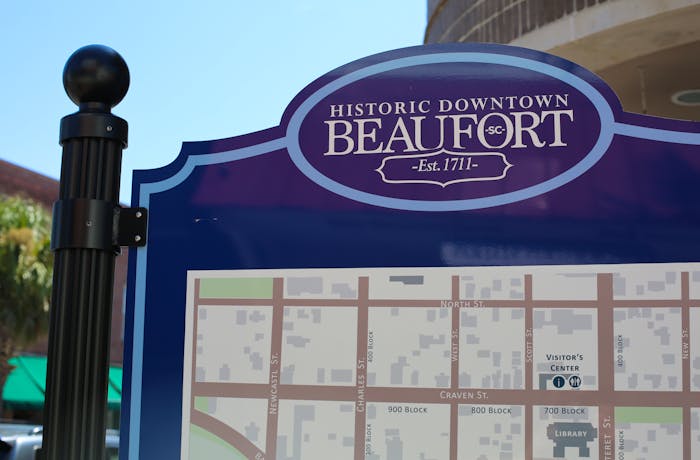Beaufort Digitizing Downtown Corridor
Jessicah Lawrence / Bluffton Today
In addition to being known for its beautiful views, history and hospitality, downtown Beaufort could soon be recognized as a digital mecca for high-wage technology companies.
City leaders are delving into a public-private partnership to create the Beaufort Digital Corridor as a way to recruit and nurture small tech-related businesses to enhance economic opportunity for a generation that thrives on technology.
With many entrepreneurs working out of their homes in small spaces, the corridor can offer a setting to do business and collaborate with fellow tech-savvy small businesses.
The Beaufort Redevelopment Commission recently voted to use the same model that helped build the Charleston Digital Corridor, which has grown the technology economy from 18 companies in 2001 to more than 350 as of 2015.
An old banking building at 500 Carteret Street will soon undergo renovations to designate about 5,000 of 18,000 square feet for small, new tech companies. The costs are still being discussed, as the design remains in the planning stages, said Beaufort City Manager Bill Prokop.
Prokop said the building should be renovated by mid-fall and the first participants could be working in the center by late December.
"Our goal is 10-12 companies by the end of this year, and 100 participants here at BASEcamp within five years," Prokop said. "There are a lot of strategies to put into play to make that happen, but we are ideally located to tap our talent bank, with the Marine Corps Air Station, USCB and the Technical College of the Lowcountry right outside the door."
The city will look to find financial partners while the Charleston Digital Corridor helps by creating a business development strategy.
Interested tech companies wanting to join the Beaufort corridor will go through an application process with the Charleston Digital Corridor, Prokop said.
Mayor Billy Keyserling said the goal is to expand the tax base by creating more jobs, help service members transition into civilian life and attract visitors who are looking to relocate.
City Councilman Stephen Murray, a Beaufort Redevelopment Commission member and key advocate of the project, said Charleston's Digital Corridor is a success story worth imitating.
"We have a lot in common with Charleston, including history, beautiful buildings and natural coastal environment, and a high quality of life that is appealing to young tech entrepreneurs," Murray said. "The secret is to provide the business, social and education infrastructure to get them started and to succeed here."
The Beaufort Digital Corridor will rely on participation from the community. Like Charleston, Beaufort attracts many new residents and visitors because of its rich history, preservation, charm and beauty.
In the 1990s the Charleston economy was heavily dependent on the tourism industry.
The cost of living was rising at a dramatic rate while per-capita wages were stagnant and a large percentage of college graduates were leaving the area due to lack of economic opportunity.
"The issues facing Beaufort are strikingly similar to Charleston's challenges in the 1990s, namely rising cost of living, dependence on military establishments, visitor-centric development, stagnating wage levels, and brain drain," said Ernest Andrade, executive director of the Charleston Digital Corridor.
Andrade said the project is a "business development initiative" because it will focus on helping homegrown and local talent create new tech-related businesses, rather than traveling to other states or countries to recruit existing companies to relocate to the Lowcountry.